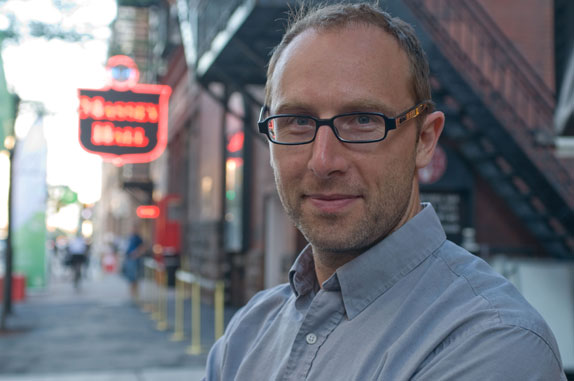
Photograph by David Franco.
Set in Rome in 1978, David Bezmozgis’s first novel, The Free World, tells the story of the Krasnansky family, three generations of Latvian Jews, who leave their lives in Riga, and, like many Soviet immigrants bound for the West in the late seventies, must spend six months in the Italian metropolis to secure their visas. Contrary to the book’s title, the Krasnanskys find themselves confined to this Roman waiting room, weighed down by the rubble of their communist past, the uncertainty of their future, and their allegiances to one another. Born in Riga in 1973, Bezmozgis immigrated to Canada with his family in 1980 and told the immigrant assimilation story with his tender, restrained collection of short fiction, Natasha and Other Stories (2004). The Free World is a sort of prologue to Natasha, the taxing journey his resilient characters—Jews in Transit, as the émigré newspaper offered in Rome is called—made before settling in the North American suburb. I recently spoke with Bezmozgis at a café not far from the New York Public Library, where he is currently a fellow at the Dorothy and Lewis B. Cullman Center.
The Krasnanskys’ story begins on a train platform in Vienna and concludes before they ever reach the North American free world. Had you always intended to contain the narrative in this strange way station?
Yes, one thing I knew very clearly is that the book begins when they get to Italy and it ends when they’re about to leave. That in-between period, that purgatory, is the balancing point between the past, the unknowable future, and the present, which is intriguing and exotic. It’s full of dramatic possibility. It was always fascinating to me that these people had given up their lives without really knowing where they were going. I feel like I leave my apartment in Brooklyn to go to the Bronx with more information than my parents had leaving the Soviet Union to go to Canada.